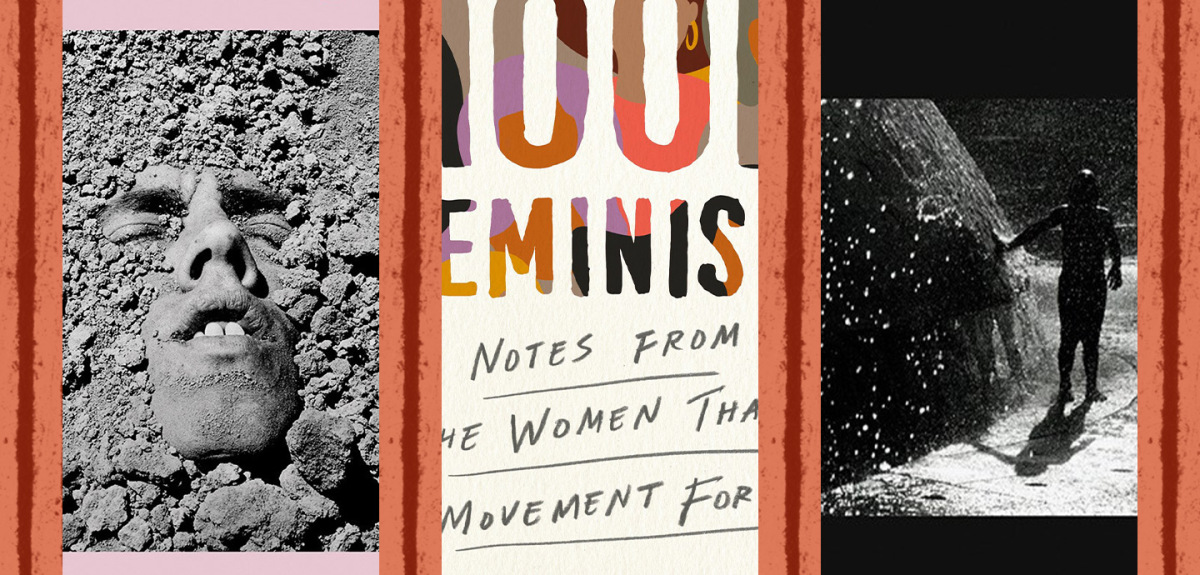[ad_1]
Works of criticism, or more broadly, texts that critically survey our world, often don’t subscribe to fixed genres or easily distinguishable forms. During a year that rattled our attention and pulled hard at our ability to concentrate, these books, in their varied forms, drew us in. Through their joy (and pessimism) and critical perspective, each book proposes a different way of seeing the everyday—a view we often take in without thought or, worse, altogether overlook.
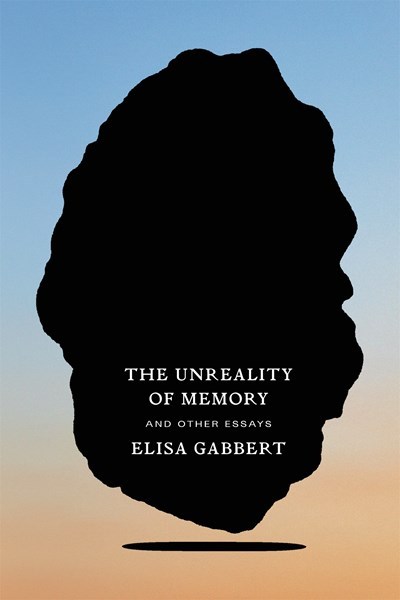
Unreality of Memory: And Other Essays
By Elisa Gabbert
FSG Originals
“Why are some deaths more horrifying than others?” asks poet Elisa Gabbert in her book of essays Unreality of Memory. This question is just one of the many that Gabbert reflexively poses while she surveys one human atrocity after another, and as she describes the ways popular culture memorializes events like the Challenger Disaster and Hiroshima. Discovery Channel documentaries, YouTube reenactment videos, and T-shirts bearing mushroom clouds all become her objects of study. Gabbert’s expansiveness allows her to move from an investigation of our societal obsession with the horrific to a serious questioning of the very forms of subjective experience we inhabit. An uncanny and deeply moving collection for our moment.
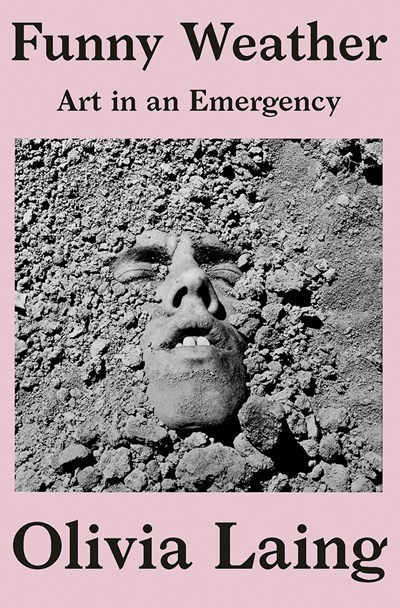
Theory of the Gimmick: Aesthetic Judgment and Capitalist Form
By Sianne Ngai
Belknap Press
Gimmicks abound in our lives from the time-saving, robotic vacuums that require endless attention to the loyalty programs we can seemingly, despite our best efforts, never unenroll from. In her illuminating book, Theory of the Gimmick, Sianne Ngai suggests that the gimmick presents itself, through its labor-saving trick, as working too little and yet, paradoxically, working too hard for our attention. Bound up in this entanglement is an uncertainty about the value of labor and time: how are we to measure wealth when capitalism’s gimmick is its exacting mastery of concealing both the unpaid labor and time that produces its value?
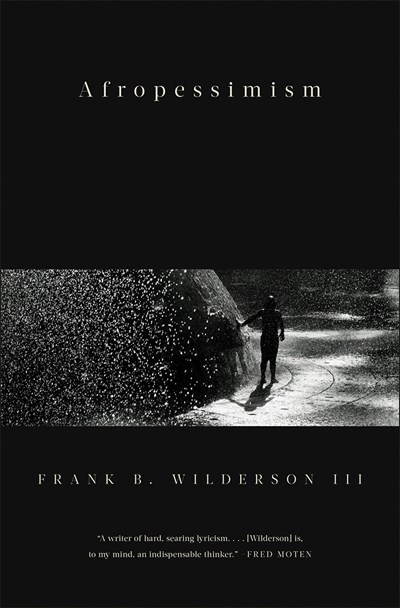
Afropessimism
By Frank B. Wilderson III
Liveright
Radical in both its appeal and formal experimentation, Frank B. Wilderson III’s Afropessimism pulls from the history of Black revolutionaries to question a central tension between the disappointment of unrealized liberation and the hope-filled rhetoric of future Black liberation: what if Black revolution does not, cannot, conclude in liberation? If history has shown that the condition of being human is so deeply wedded to race then what could produce a true liberation except “the end of the world?”
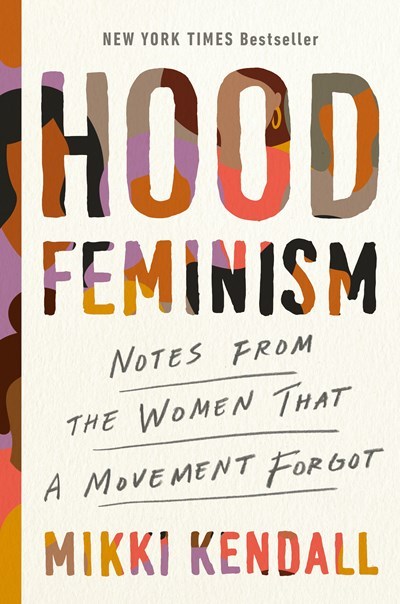
Hood Feminism
By Mikki Kendall
Viking
In this incisive collection of essays, Mikki Kendall challenges the project of the modern feminist movement by locating its energy as simply and obviously misplaced. Instead of picking up on issues of food insecurity, violence, healthcare and hypersexualization, concerns affecting all women, Kendall points out that the movement has chronically failed to address basic feminist causes, instead prioritizing issues affecting the few. In this engaged debut, Kendall mandates a centering of a movement very much in flux.
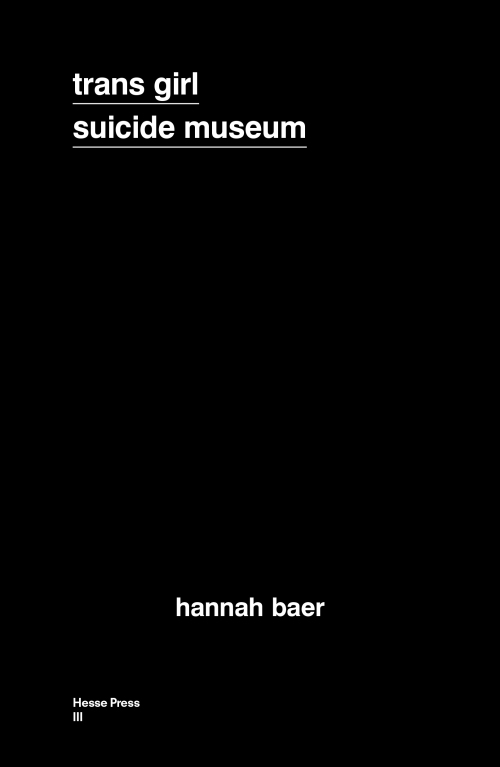
trans girl suicide museum
By hanna baer
Hesse Press
A confessional travelogue converging with a ketamine spiral, in part, forms hannah baer’s book trans girl suicide museum, wherein broad, cultural wrestlings converge with an intimate rendering of gender, in the midst of transition, capturing an experience of living that feels adjacent to death. The question of trans liberation, at a time when identity is ever more heavily monitored, moves this book to remind us that “gender is not something you experience only in isolation, but something that is reflected back to you by other people” for better and for worse.

Against Amazon: And Other Essays
By Jorge Carrión
Biblioasis
Jorge Carrión’s incisive critique of Amazon’s comes second to his earnest and impassioned love of our most treasured space: the bookstore. Recounting bookstores from London to Miami’s Little Havana to his own well-loved childhood haunts, Carrión reminds us that “[g]ood bookshops are questions without answers.They are places that provoke you intellectually, encode riddles, surprise and offer challenges, hypnotize with that melody—or cacophony—which creates light and shadows, shelves, stairs, front-covers, doors opening, umbrellas closing, head movements indicating hello or goodbye, people on the move.”
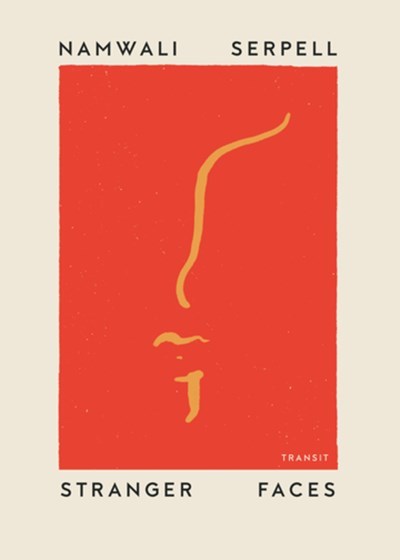
Stranger Faces
By Namwali Serpell
Transit Books
Namwali Serpell’s slim essay collection undertakes a semiotic exploration of the human face focusing not on the familiar, friendly faces of those closest but, instead, on the faces of strangers. Through this study of the unfamiliar and “unruly,” Serpell proposes much about the ability of the human face to both reflect and escape cultural and individual significations of meaning. At its core, Stranger Faces is a meditation that complicates our ability to see faces as just faces. Indeed, as Serpell suggests, faces are divided “between the surface of the face itself and whatever we think that surface means.”

Funny Weather: Art in an Emergency
By Olivia Laing
W.W. Norton & Company
“Every crisis, every catastrophe, every threat of nuclear war was instantly overridden by the next. There was no possibility of passing through coherent stages of emotion, let alone thinking about responses or alternatives,” writes Olivia Laing in Funny Weather, a collection of essays which brings together a career’s span of essays exploring art, loneliness, technology, and much, much more. Laing’s refrain throughout her disparate collection reigns true: art’s importance as both a mode of resistance and a mode of repair is now more crucial than ever.
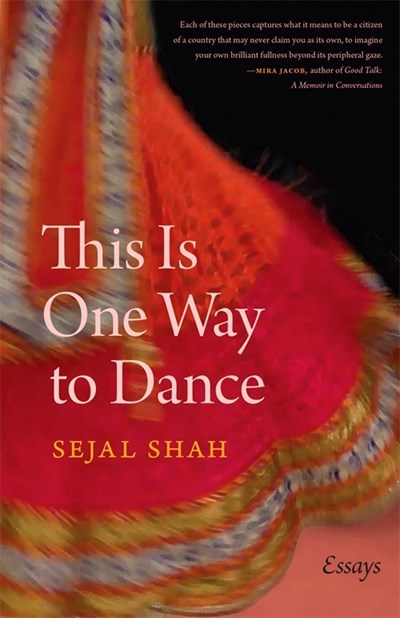
This is One Way to Dance
By Sejal Shah
University of Georgia Press
Spanning two decades, Sejal Shah’s essays meditate on the Asian American bodily experience, drawing out specific issues of racialized hypervisibility and hallowed invisibility within a larger racial discourse. The form of these essays—lyrical, discerning, intimate, full—allows Shah to ask not just how bodies move but, rather, how they dance, without limit, among the traditions, realities and dreams they inhabit.
[ad_2]
Source link
